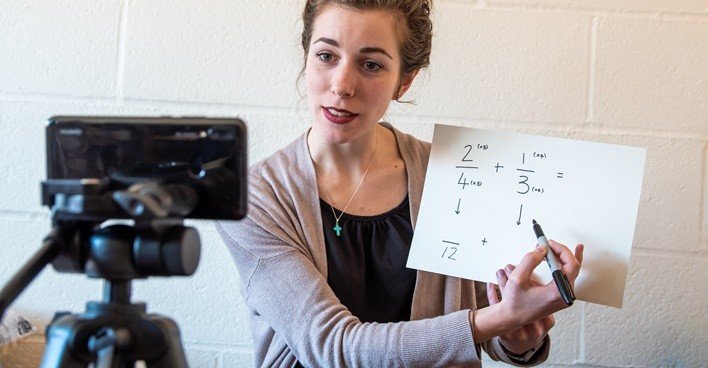Teacher Task Force calls to support 63 million teachers touched by the COVID-19 crisis

Around 63 million primary and secondary teachers around the world are affected by school closures in 165 countries due to the Covid-19 pandemic.
They are on the frontlines of the response to ensure that learning continues for nearly 1.5 billion students, a number that is predicted to rise.
Everywhere, together with school leaders, they have been rapidly mobilising and innovating to facilitate quality distance learning for students in confinement, with or without the use of digital technologies. They are playing a key role also in communicating measures that prevent the spread of the virus, ensuring that children are safe and supported.
This unprecedented situation is putting teachers, students and families under stress.
In some cases, teachers who may already be exposed to the virus themselves are trying to manage the anxiety of being told to work in situations where the COVID-19 risk is spreading. Others are dealing with the stress of of delivering quality learning with tools for which they have received little or no training or support. In many countries, contract teachers, substitute teachers and education support personnel risk seeing their contracts broken and their livelihoods disappear.
The Teacher Task Force, an international alliance working for teachers and teaching, has issued a Call for Action on Teachers to ensure that teachers are protected, supported and recognised during the crisis. Leadership and financial and material resources for teachers are necessary to make sure that quality teaching and learning can continue at a distance during the crisis, and that recovery is rapid.
The Task Force is calling on governments, education providers and funders – public and private – and all relevant partners to:
- Preserve employment and wages: This crisis cannot be a pretext to lower standards and norms, or push aside labour rights. The salaries and benefits of the entire teaching and education support staff must be preserved.
- Prioritise teachers’ and learners’ health, safety and well-being: Teachers need socio-emotional support to face the extra pressure being put on them to deliver learning in a time of crisis as well as provide support to their students in these anxious circumstances.
- Include teachers in developing COVID-19 education responses: Teachers will have a crucial role in the recovery phase when schools reopen. They must be included at all steps of education policy-making and planning.
- Provide adequate professional support and training: Little attention has been given to providing teachers with adequate training on how to ensure that learning continues. We must move swiftly to ensure that teachers receive the necessary professional support.
- Put equity at the heart of education responses: Greater support and flexibility will be needed for teachers who work in remote areas or with low-income or minority communities, to ensure that disadvantaged children are not left behind.
- Include teachers in aid responses: The Teacher Task Force urges financing institutions to help governments support education systems, particularly the teaching workforce’s professional development. Such support is particularly urgent in some of the world’s poorest countries, which are already struggling to meet education needs because of critical shortages of trained teachers.
For more information, download the call in English, French, Spanish and Arabic.
The International Task Force on Teachers for Education 2030 is a global network of over 90 governments and some 50 international and regional organisations (including UN organisations, civil society organisations, the teaching profession and foundations) working to promote teachers and teaching issues. Its Secretariat is hosted by UNESCO at its headquarters in Paris.